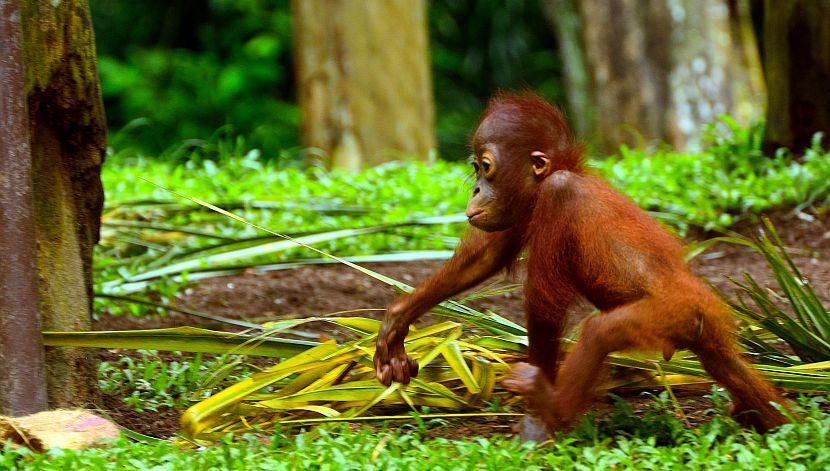It’s no secret that orangutans need our help. There’s a multitude of harrowing statistics that demonstrate the vulnerability of great apes; many of which are born from our own personal doing. But, despite the negative impact we humans have had on these poor animals (and the rainforests they call home), there are still many of us willing to fight for the protection of a tragically endangered species. Here at The Great Projects, we are incredibly proud to support a wealth of brilliant conservation projects the world over, with one species in particular holding a very dear place in our company’s heart. It is the orangutan, after all, which represents our flagship project - and as such, has served as a catalyst for conservation, opening the door for many compassionate volunteers to make a difference. But in which ways are volunteers able to assist in conservation efforts?
Enrichment

There are many elements of help which are beneficial to the endangered orangutan; perhaps none more than the act of enrichment. Considered as a key husbandry principle, enrichment seeks to enhance the quality of animal care and is typically offered as an element of rehabilitation – which, of course, is fundamental to the lives of young or distressed orangutans. It may be that infant orangutans were poached for the illegal pet trade (and subsequently saved by conservation organisations), or it may be that their mothers sadly lost their lives before passing on vital survival techniques to their young. This loss is an insurmountable burden to bear, and it is for this reason that enrichment activities are absolutely necessary. Volunteers are able to aide in enrichment by creating stimuli to be used by the orangutans, designing ‘tools’ to improve both their physical and mental well being. Ultimately, the goal is to encourage orangutans to learn important skills which will give them a better chance of surviving in the rainforest of their own…and there is no harm in making learning time fun for all those involved! For example, volunteers are able to enjoy building environmental obstacles such as tyre swings, and then watching as the orangutans swing from them and improve their physical strength! The volunteers can also freeze fruit into ice blocks before allowing the orangutans to figure out how to get to the tasty snack inside…so not only are they discovering senses such as sight, taste, smell and touch, but the ‘prize’ at the end enforces positive mental wellbeing for the apes!
Reforestation

Another way in which orangutans have been at risk is due to deforestation. There have been circumstances in which forest fires have ravaged the jungle but, in a shameful way, our own consumerist activities have meant that trees are destroyed (for instance, in the mission to obtain palm oil for cosmetics, home cleaning products and other such items.) No matter the reason for the disappearing rainforests, humans must do something to prevent deforestation from getting any worse, and one of the ways in which volunteers can help is by planting new trees on plots that are now without natural life or foliage. Reforestation enables local environments to thrive, and will give a greater chance of survival to those animals that need it. (There is also an element of organic farming that will be undertaken, as to feed the orangutans home-grown produce and to provide a more sustainable outlook to the projects themselves.)
Observation and Monitoring

By keeping a consistent eye on the numbers of animals in the rainforest (and any noticeable patterns in their habits), volunteers will be working towards important conservation efforts…all while enjoying a wonderful opportunity to capture wildlife in its glory! Typically, monitoring will be carried out in the least invasive method possible (say, for example, from a small boat on the rivers), allowing volunteers to study the animals acting naturally, as they would if nobody was watching at all. This observation and monitoring is not only helpful for scientific data, but for checking on the number of orangutans in the jungle to recognise which volunteer techniques may have been helpful to the animals, and to see where other improvements may need to be made across the project.
Developing Knowledge and Habits

Alongside the above important aspects, volunteers should aim to learn as much as they can about orangutans, and recognise where they’re able to make changes to protect the rainforest. Whether it’s becoming educated on the impact of deforestation and palm oil plantations, or if you want to do more in terms of physical volunteer work in the future due to what you’ve learned onsite, all volunteers are sure to leave the projects with either a new state of mind, or a reaffirmed emotion towards conservation efforts.


















